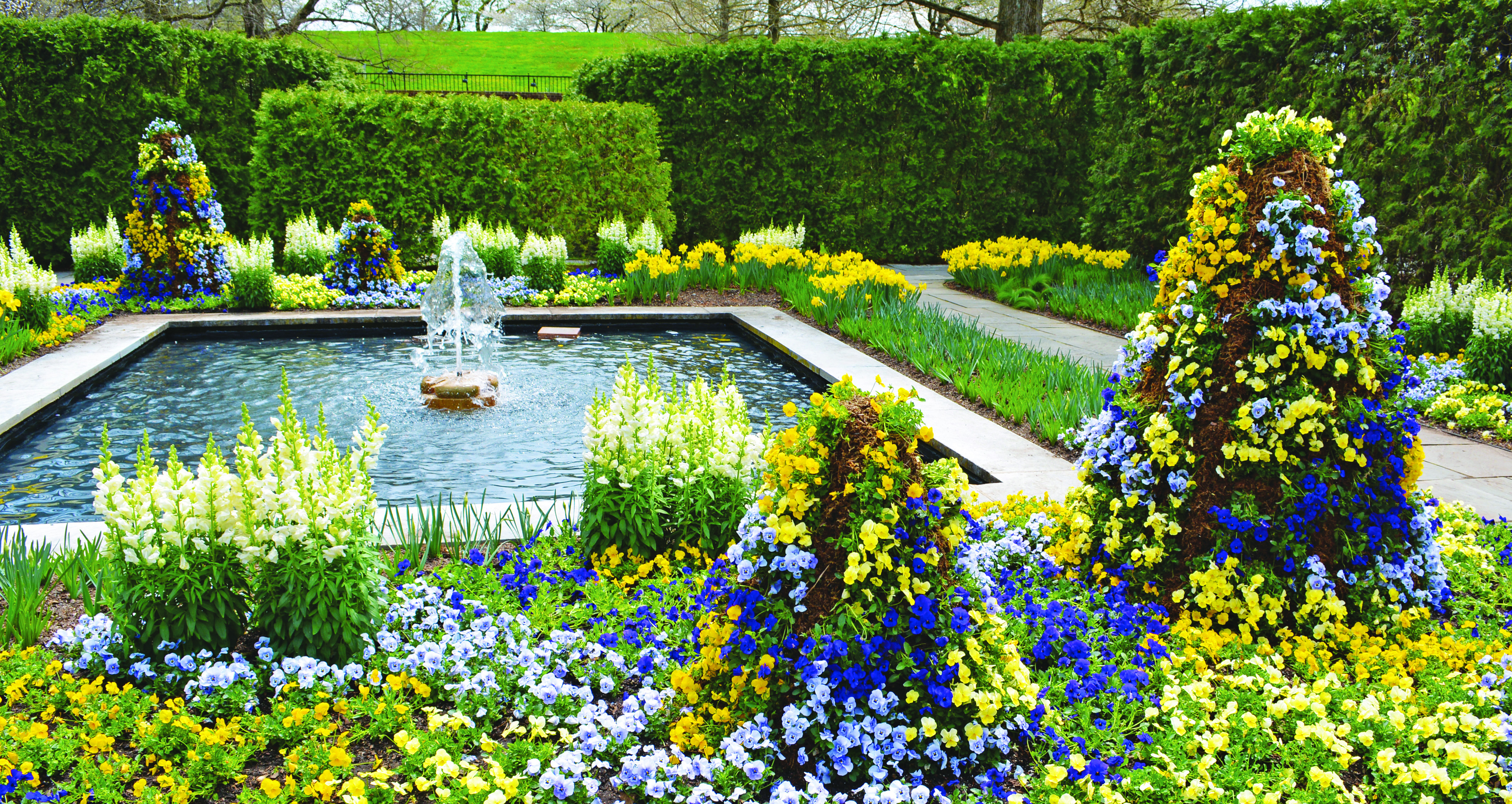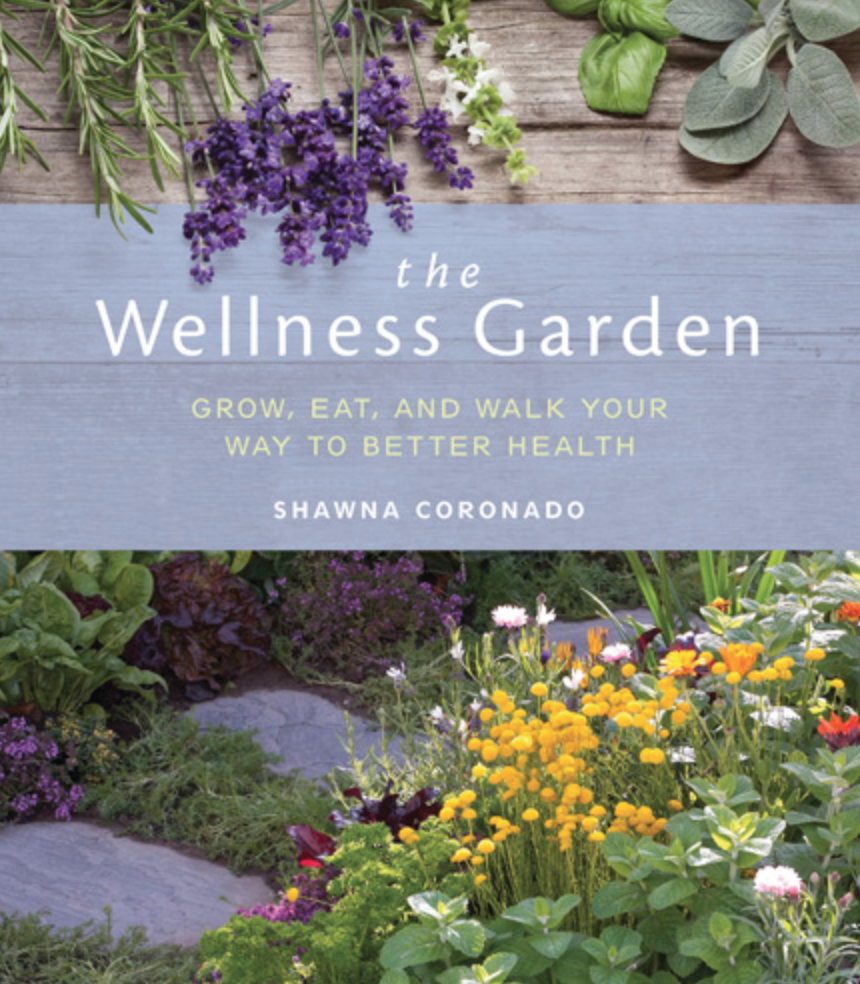Article
Reducing Anxiety and Depression With Garden and Green Activities
by Shawna Coronado
A THERAPEUTIC GARDEN is defined as a space where you can accomplish gardening and green activities that specifically address a person’s psychological, spiritual, physical, and social needs. Therapeutic gardening can be far more than a traditional garden space: it can be expanded to include many outdoor landscaped areas, green spaces, and even activities that can be accomplished in a garden or open park expanse. Discovering an outdoor place where you can connect with nature therapeutically while performing green activities can be life changing. These “green activities” could be as specific as gardening, walking, running, or cycling in nature and garden-like locations, or they can be more widely interpreted in environmental conservation work.

BRAIN NEUROTRANSMITTERS IN THE GARDEN
While we know that the soil bacterium strain Mycobacterium vaccae has been shown to trigger the release of serotonin when a person has direct skin-to-soil contact, there is also further proof that dopamine levels increase in the brain when we participate in green activities.
Both serotonin and dopamine are pleasure-center neurotransmitters that are associated with happiness, pleasure, and love. Serotonin specifically regulates mood, memory, and impulse. Dopamine is closely tied to euphoria, enjoyment, and motivation. Dopamine is also responsible for those magical feelings of “falling in love.” When depression is caused by a chemical imbalance, it is often associated with an insufficient level of dopamine in the brain.
SUNLIGHT AND SEROTONIN
Another proven serotonin stimulator is sunlight. By exercising outdoors in the garden or walking outdoors daily, you are exposing yourself to the daylight spectrum. It is a good practice to expose yourself to daylight without sunglasses for 20 minutes every day.
Dr. David Edelberg, MD, confirms in his book, The Triple Whammy Cure, that improving serotonin levels can reduce stress levels. The book, although applicable to most people, focuses on women’s health. Dr. Edelberg states that the more serotonin you have, the better you are able to tolerate all types of extreme stress. He also proposes that women have less serotonin than men do, which makes them more susceptible to stress-related issues in general. He encourages everyone to try daily sunlight exposure.
Sunlight exposure also appears to be an effective treatment for winter-based seasonal affective disorder (SAD). This particular type of depression is related to changes in the seasons, starting as the daylight ebbs in fall and stretching through the season until there is more daylight exposure after winter. SAD saps energy and can make you feel moody and sorrowful. Performing green activities outdoors with regular exposure to daylight has a significantly positive effect on the patient.
There are certain eye conditions, such as macular degeneration, that worsen with exposure to sunlight. If you suspect you have this condition or something similar, please contact your doctor for his advice before spending more time in the sunlight. Also, it is very important to wear sunscreen while working outdoors. This is critical even on cloudy days as the sun’s rays are powerful and can easily overwhelm precious skin when least expected.

GREEN ACTIVITIES AND ENGAGING WITH NATURE
According to the Centers for Disease Control and Prevention statistical website, data from the National Health and Nutrition Examination Surveys from 2005 to 2008 show that antidepressant use has increased significantly: “About 1 in 10 Americans aged 12 and over takes anti-depressant medication.” While there is no doubt that the stigma related to mental illness issues is dissipating, which encourages proper medication when necessary, it becomes critical to learn new ways to reduce pharmaceutical dependency whenever possible.
It is possible to reduce anxiety, depression, and related medication use by increasing green activities, enabling people to find an alternative path to their personal wellness lifestyle. Mind” is an organization in the United Kingdom that assists millions of people online to learn how to cope with anxiety, depression, and other mental health issues. Mind also provides support directly through local chapters and conducts treatment studies through the University of Essex.
In one such report, “Ecotherapy—the Green Agenda for Mental Health,” 94 percent of test subjects commented that they felt green exercise had furthered their mental health in a positive way. Additionally, the study stated that participants felt their physical health improved with outdoor walking. Respondents also reported decreased levels of depression and felt less fatigued and tense after walking outside, with increased mood and self-esteem.
In other words, outdoor activities such as gardening and walking can significantly influence your state of mind by triggering dopamine and serotonin levels and by connecting a person’s very soul to the natural outdoor environment.

LIVING MINDFULLY
One of the great benefits of the garden and nature, in general, is that it lends itself to mindfulness. When your mind is filled with thoughts about work, finances, and family, there is no better cure than to weed or tend to your plants. Gardening causes our minds to be intrinsically focused on the present. Life’s difficulties and dramas melt away as we address our task.
Plants need love. Tending them takes our eyes, our hands, and our hearts. In the garden, we hear the birds, the wind in the trees, the beauty and color in flowers. We touch the soil and plants, we smell the magnificence of all of nature on a spring day, we can taste the harvest of a strawberry. Gardening stimulates all the senses and the act of gardening is giving to someone else more important than ourselves: Mother Earth.
Living mindfully is often defined as “living in the moment.” Without a doubt, organic gardening creates an environment where one must live in the present moment. Most importantly, the singular activity of gardening can calm an anxious mind and allow that focus to wash over you in a way very few things can.
An additional benefit of mindfulness is that the rhythmic tasks in the garden often set your thoughts to wander. Weeding and digging can stimulate your mind to drift through difficult problems our brain is trying to solve and can sometimes trigger a mental release to the block we had while staring blindly at the computer only minutes before.
MEMORY LOSS AND DEPRESSION
Living mindfully can become difficult when we have memory loss issues. Particularly prevalent amongst depression sufferers, short-term memory loss or brain-fog episodes can be particularly challenging. Other conditions such as Alzheimer’s and dementia are also often associated with depressive moods caused by an inability to remember or perform recent activities related to short-term memory. Watching a friend or family member suffer through a memory disorder can be heartbreaking, but gardening and horticultural therapy can definitely help someone live a fuller lifestyle.
While short-term memory and brain-fog episodes can happen at any age, daily horticultural therapy can make a difference particularly in the elderly with depression and dementia. Horticultural therapy and exposure to gardens has been shown to be effective for improving sleep, agitation, and cognition in dementia patients. As a cognitive therapy, horticultural therapy can help someone learn new skills and regain their lost skills by helping to rebuild brain pathways. Overall, horticultural therapy is a healing method to improve memory and social interaction with limited adversative side effects. Improving stress levels, feelings of well-being and self-esteem is also possible with horticultural therapy.
While there is no instant cure for clinically diagnosed depression, there are ways to utilize a garden to make a difference. Often people who have conditions that affect short-term memory still have an intimate connection with their long-term memory. For instance, many Alzheimer patients can remember music and television shows from their childhood. When listening to songs from their childhood, faces will go from slack to excited, and the patients will sometimes sing along to the music word-for-word. With this in mind, try building a special garden focused on long-term memories for the people who have memory challenges that might help engage positive memories. Recreate plants, flowers, patio furniture, and outdoor living experiences that trigger the five senses with historic and memorable scents, sounds, and scenes for the patient or garden visitor. This stimulation of long-term memory triggers—such as smelling roses from a childhood rose garden—can help open up cognitive thoughts.
A 2011 multi-study review, “Environmental Science & Technology,” learned that compared to being indoors, performing green activity exercises outdoors in natural environments worked strongly to build more positive mental states among study subjects. They felt reenergized with less depression, anger, and confusion.
But even if you do not suffer from depression, anxiety, or memory loss, you should incorporate these activities into your wellness lifestyle. Making a difference for ourselves emotionally is as important as our physical care, and with your medical professional’s guidance, a garden can change our mindset for the positive.
Excerpted from The Wellness Garden by Shawna Coronado of ShawnaCoronado.com

About author
Shawna Coronado is a successful author, blogger, photographer, and media host with wellness lifestyle living, organic gardening, and anti-inflammatory cooking who campaigns for social good. Along with her gardening and green-lifestyle initiatives, Shawna is concerned about promoting and teaching healthy living. She was diagnosed with severe Spinal Osteoarthritis, this diagnosis has led her to educate audiences about beneficial diet, food, and health practices through her organic living media. She dreams that this will enable more people to be active who suffer from similar conditions. Her successful wellness lifestyle photographs and stories have been shown both online and off in many international home and garden magazines and multiple books.
She has appeared on national television and radio with features on PBS, WGN News, FOX News, NPR, and more. She was featured as a Chicago Tribune “Remarkable Woman”, has been named one of the Top 10 bloggers in the nation in a Better Homes and Gardens feature, a Top 8 Gardener to Follow on Twitter, and the #1 Garden Blogger on Twitter by Cision. You can learn more about Shawna at http://www.shawnacoronado.com.
Photo courtesy of Shawna Coronado
Share article








You must be logged in to add a comment ... → Log in | Register